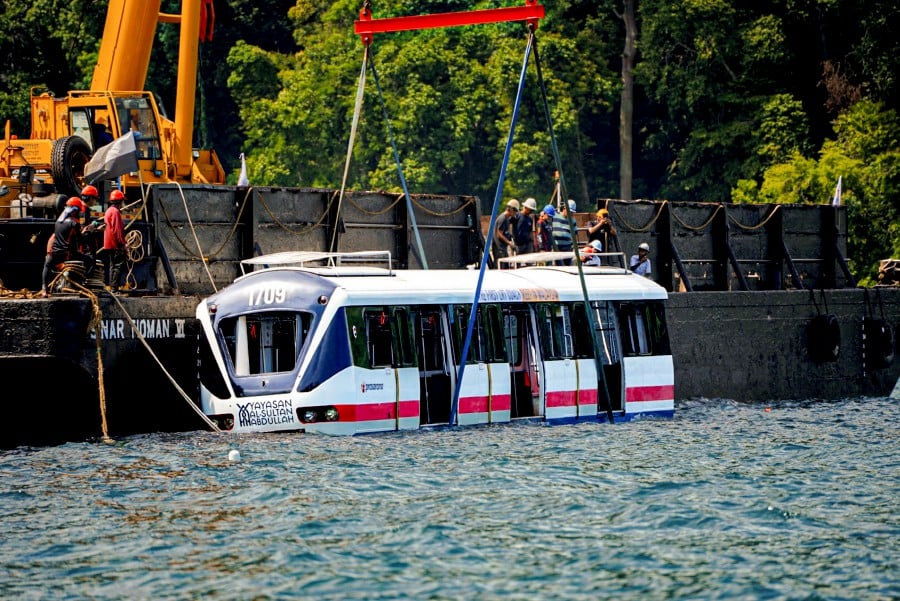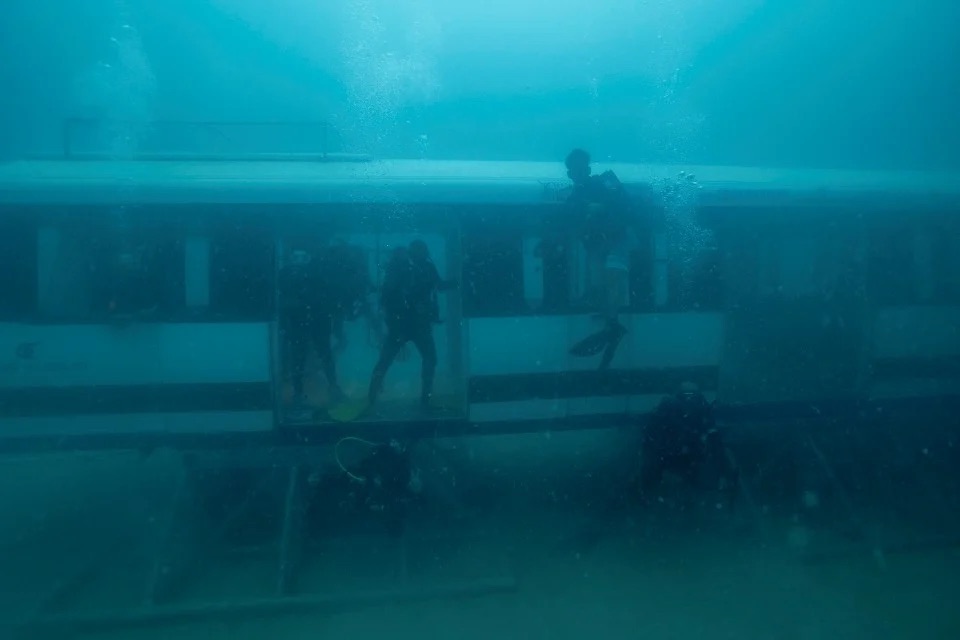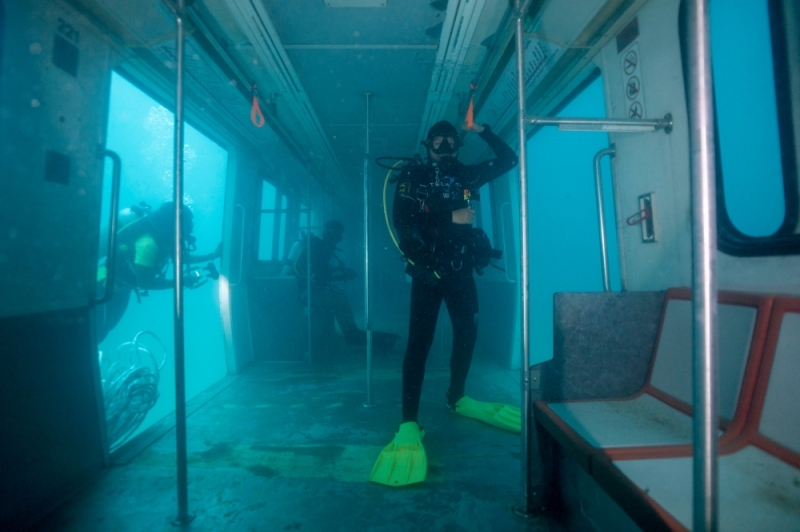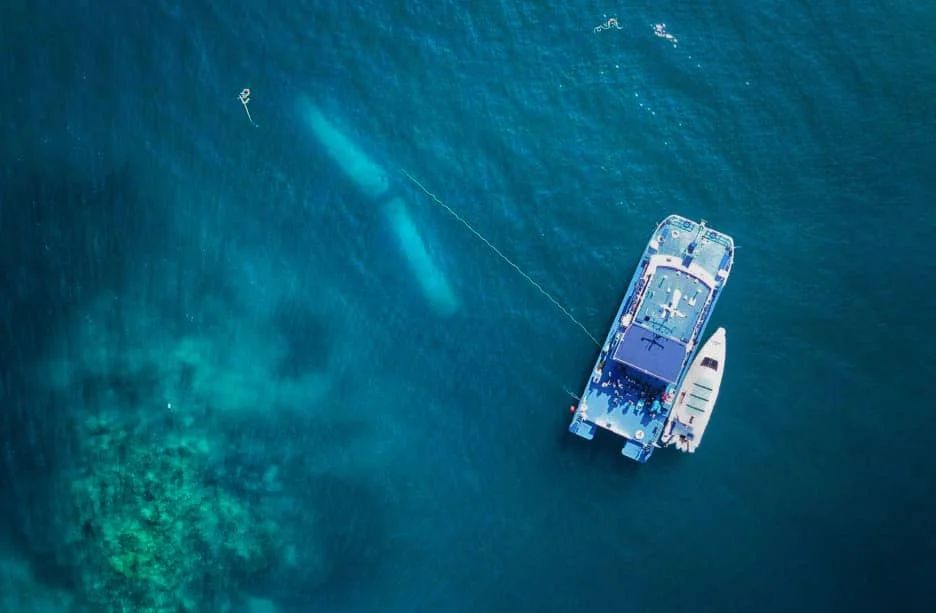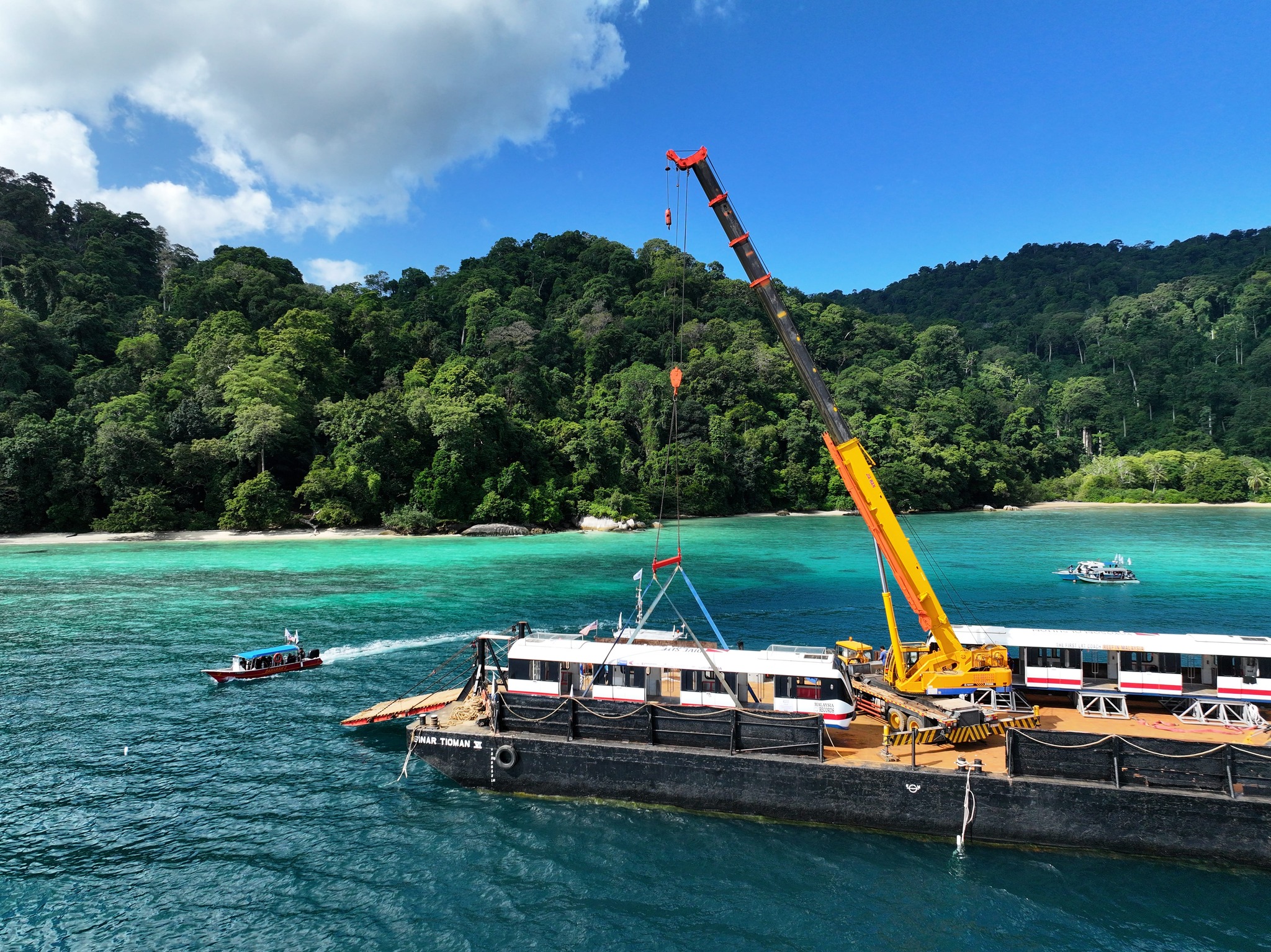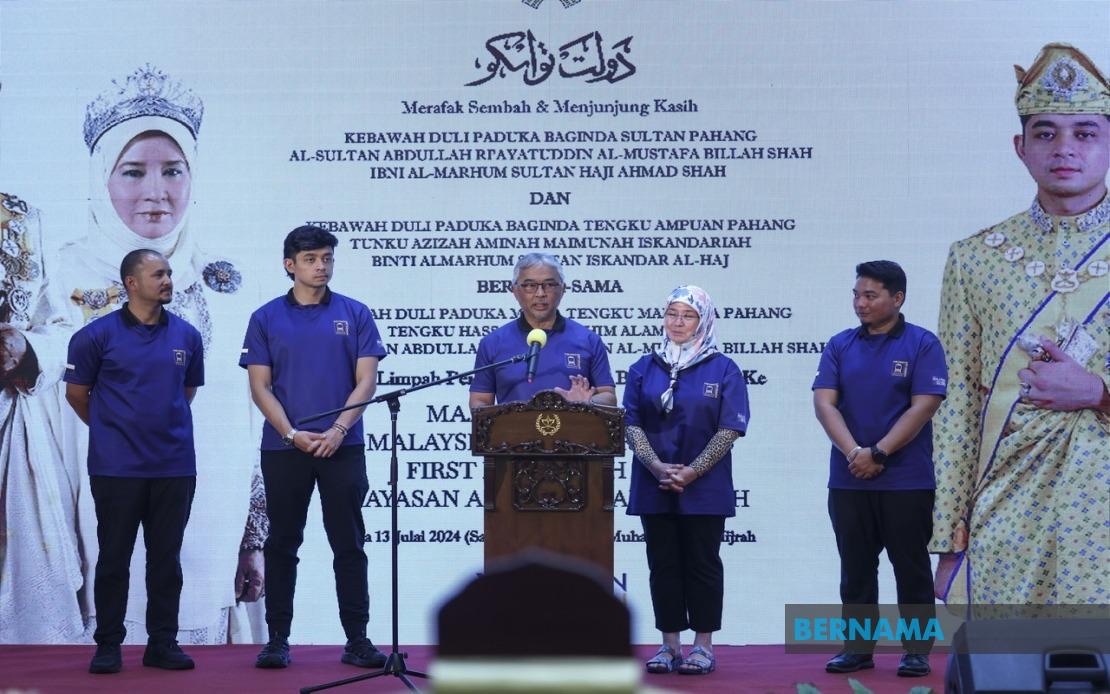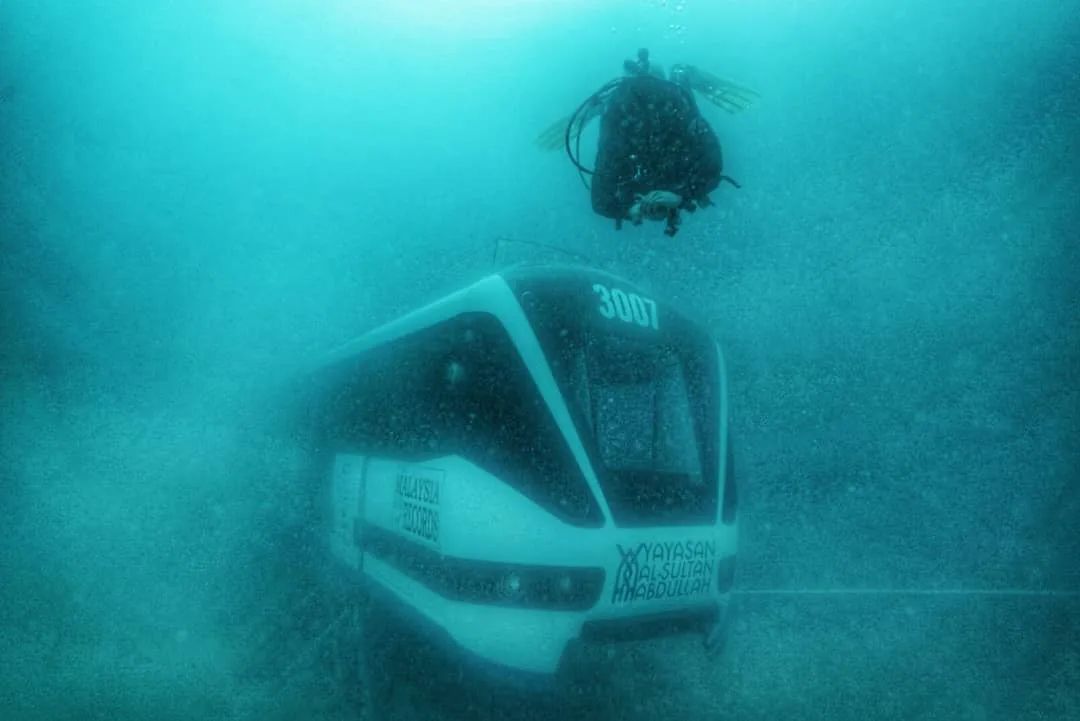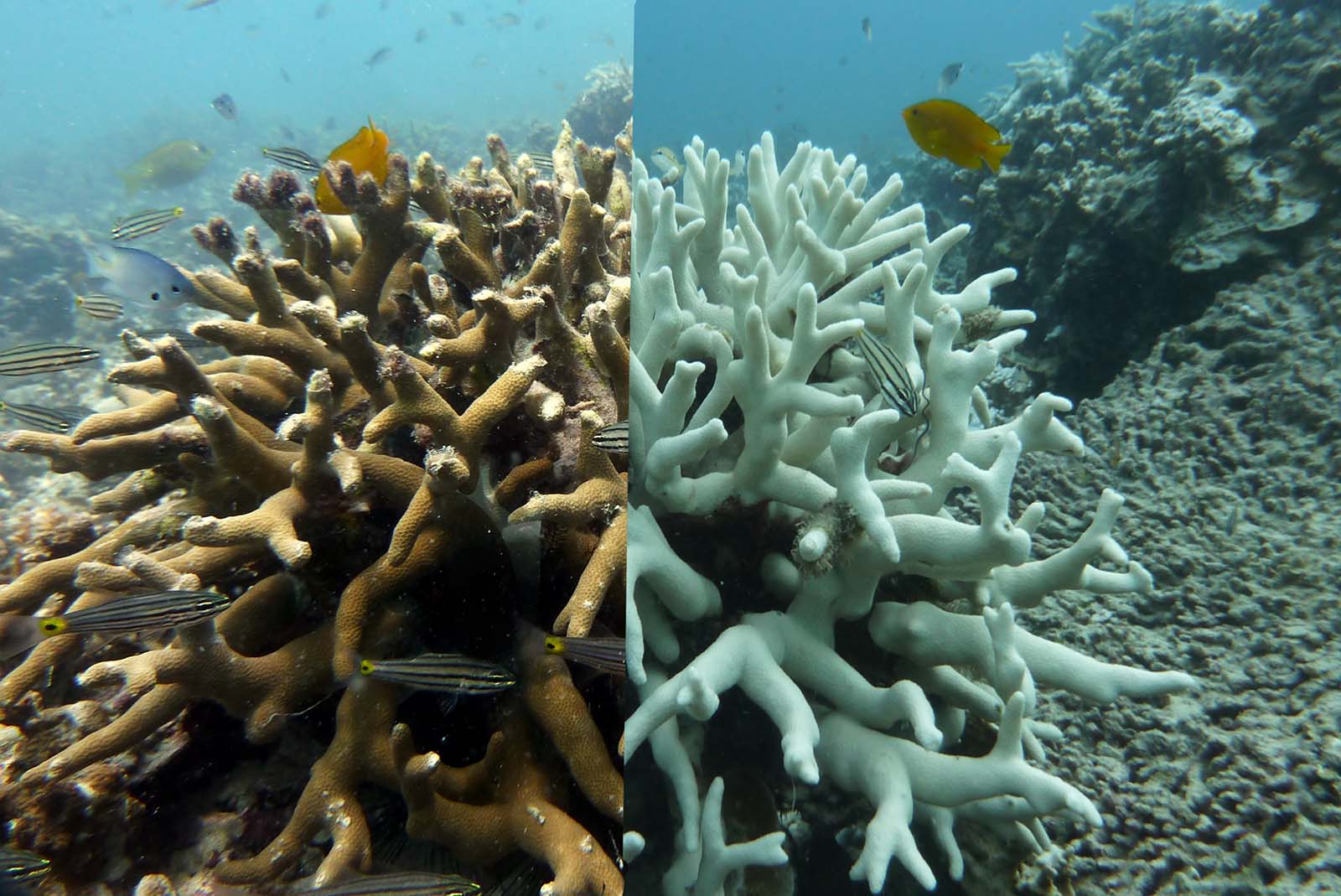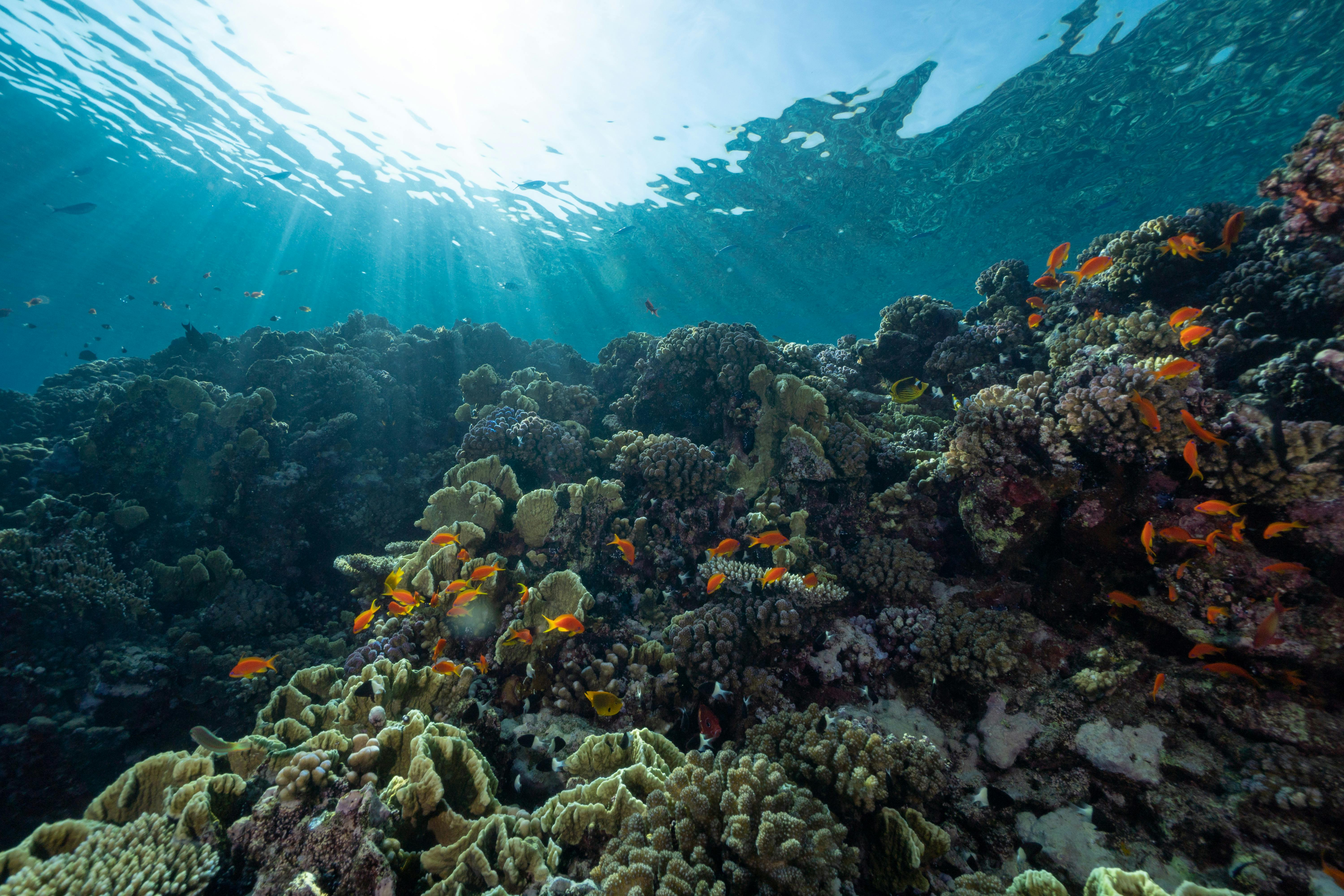Tioman Becomes First Island In Malaysia To Submerge LRT Coaches As Artificial Reefs
The initiative aims to preserve the marine ecosystem around Tioman.
Light rail transit coaches are being submerged in Tioman waters to act as artificial reefs
Tioman is the first island in Malaysia to undertake this initiative, earning a title in the Malaysia Book of Records.
Bernama reported that the Sultan of Pahang, Al-Sultan Abdullah Ri'ayatuddin Al-Mustafa Billah Shah, officiated the launch of MBOR: The First LRT Coach Reef in Malaysia on Saturday, 13 July.
In his speech, Al-Sultan Abdullah expressed his hope that the artificial reef will aid in preserving the marine ecosystem around Tioman and help rehabilitate the coral reefs in the area
He also hopes that the initiative will positively impact the tourism industry by attracting visitors, especially divers, to Tioman.
The new reef site has been named the Al-Sultan Abdullah Dive Site.
According to Rapid KL, the LRT coaches that were submerged are some of the oldest used on the Kelana Jaya Line since 1998. They were decommissioned from service in October 2023.
Over half of the coral reefs in Malaysia were affected by coral bleaching between April and June due to increased sea surface temperatures
The Fisheries Department confirmed that the affected are marine park islands are Pulau Payar (Kedah); Pulau Perhentian, Pulau Redang and Pulau Tenggol (Terengganu); Pulau Tioman (Pahang); and Pulau Pemanggil (Johor).
Dive operators, divers, and surveys by non-governmental organisations such as Reef Check Malaysia confirmed the mass bleaching in their reports.
Tourists are encouraged to avoid overcrowded areas, reduce single-use plastics, properly dispose of waste, and inform relevant authorities of any coral bleaching sightings.
Coral reefs are crucial to marine life, providing habitats and breeding grounds for up to one-third of marine species
When corals are under high stress or temperatures, they turn white, giving them a bleached appearance.
Artificial reefs can alleviate pressure on natural reefs by offering alternative sites for diving, helping to protect and regenerate natural coral reefs that may be under threat.
